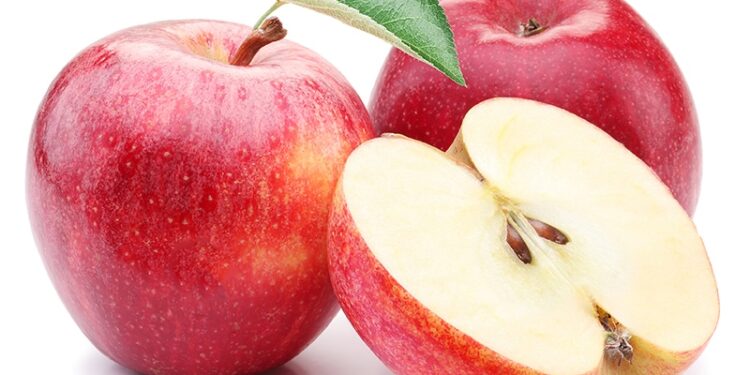TOPLINE:
A high combined intake of fruits, vegetables, legumes, and potatoes was associated with a reduced risk for Crohn’s disease — driven largely by specific foods such as apples or pears, bananas, mushrooms, and onions or garlic. Alternatively, a high intake of potatoes was associated with an increased risk for ulcerative colitis.
METHODOLOGY:
- The International Organization for the Study of Inflammatory Bowel Disease recommends eating more fruits and vegetables for their fiber benefits, but current guidelines do not distinguish between subcategories despite their differing compositions and potential effects on inflammatory bowel disease (IBD) risk.
- Researchers analyzed data of 341,519 participants without IBD (mean age, 52.1 years; 70% women) from a popular European cohort to evaluate how consumption of individual fruits, vegetables, legumes, and potatoes influenced the risk for Crohn’s disease and ulcerative colitis.
- At baseline, validated food frequency questionnaires were used to assess dietary intake of fruits, vegetables, legumes, and potatoes (including other tubers).
- Participants in the lowest vs highest quartiles had median daily intakes of 291.6 vs 840.9 g/d of combined fruits, vegetables, legumes, and potatoes; 17.0 vs 100.3 g/d of apples/pears; 6.6 vs 14.0 g/d of bananas; 2.1 vs 6.2 g/d of mushrooms; 4.1 vs 11.9 g/d of onions or garlic; and 64.7 vs 82.1 g/d of potatoes.
TAKEAWAY:
- The median follow-up period was 13.4 years, during which 149 participants developed Crohn’s disease and 379 developed ulcerative colitis.
- A higher combined intake of fruits, vegetables, legumes, and potatoes was associated with a lower risk of developing Crohn’s disease (highest vs lowest quartile; adjusted hazard ratio [aHR], 0.44; 95% CI, 0.26-0.76) but not ulcerative colitis (aHR, 1.07; 95% CI, 0.76-1.50).
- A subsequent post hoc analysis showed that the pooled intake of apples or pears, bananas, mushrooms, and onions or garlic was linked to a comparable risk reduction for Crohn’s disease as total fruit, vegetable, legume, and potato intake (highest vs lowest quartile; pooled aHR, 0.58; 95% CI, 0.33-1.02).
- However, a higher intake of potatoes was associated with a higher risk of developing ulcerative colitis (highest vs lowest quartile; aHR, 1.51; 95% CI, 1.05-2.17).
IN PRACTICE:
“In conclusion, we found that high combined intake of fruits, vegetables, legumes, and potatoes is associated with a lower risk of developing CD but not UC. This was particularly apparent for apple/pear, banana, mushrooms, and onion/garlic intakes. A higher risk of UC was observed for a higher intake of potatoes,” the authors of the study wrote.
SOURCE:
This study was led by Antoine Meyer, MD, PhD, Université Paris-Saclay, Villejuif, France. It was published online in the American Journal of Gastroenterology.
LIMITATIONS:
This study relied on food frequency questionnaires measured only at baseline, which may not have fully captured dietary changes over time. The mostly older, female population may not have represented the broader European or younger populations. As with all observational studies, residual confounding from unmeasured factors could not be ruled out.
DISCLOSURES:
The cohort was supported by the International Agency for Research on Cancer, the Department of Epidemiology and Biostatistics, School of Public Health, and other sources. Some authors declared receiving speaker fees, grants, consulting fees, and travel support from various pharmaceutical companies.
This article was created using several editorial tools, including AI, as part of the process. Human editors reviewed this content before publication.
Source link : https://www.medscape.com/viewarticle/certain-plant-based-foods-may-cut-crohns-disease-risk-2025a1000hp7?src=rss
Author :
Publish date : 2025-07-03 09:59:00
Copyright for syndicated content belongs to the linked Source.













